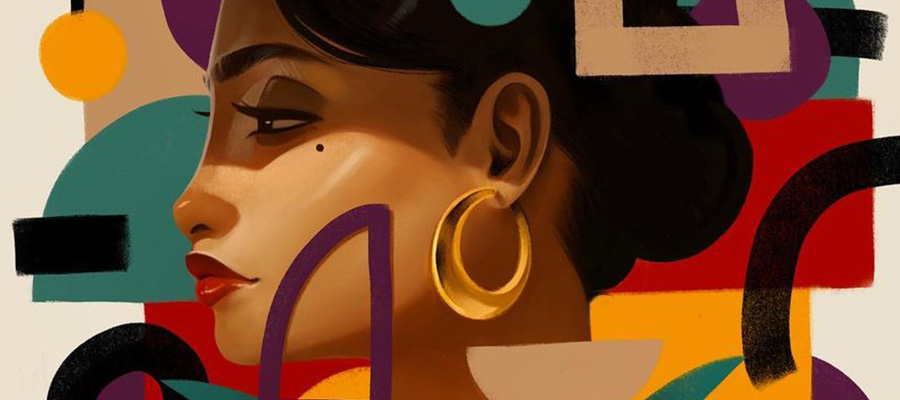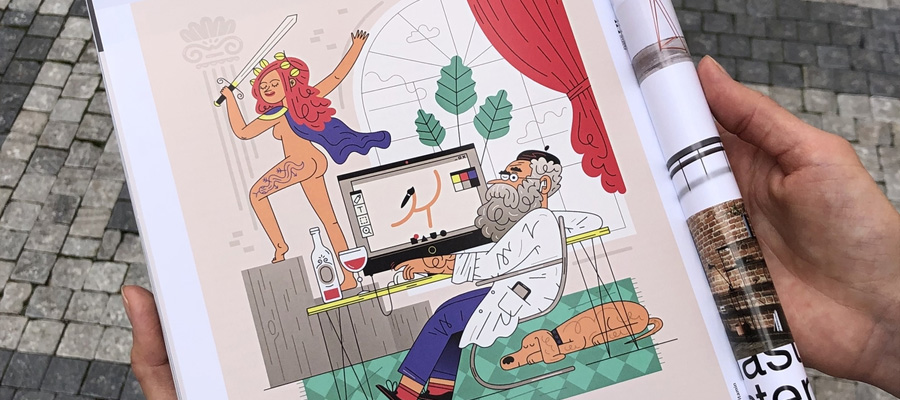Artists are notoriously restless people. Call it creative energy, or impulsivity, but the need to create wracks the mind, and body, of all creative people. When that energy does not translate to something tangible, things start to get ugly.
Imagine spending hours upon hours staring at a blank page, canvas or an unmolded lump of clay. And doing nothing. It can be frustrating beyond belief not being able to produce.
Artists being artists, the way they seek to assuage all that unexpended energy is often through chemical means. The soothing, but energizing kick of nicotine is what most artists turn to when they have nothing else to do with their hands.

But is that cigarette doing anything other than calming frayed nerves? Does smoking increase or decrease an artist’s creativity? And if they decide to quit smoking, will their art suffer?
False but Real
Mark Twain may not have had trouble churning out some of the best satirical novels of the early 20th century. But he did have a lot of trouble quitting tobacco. “Quitting is easy,” the famous scribe once remarked. “I’ve done it a thousand times.”
Today, there’s a lot of help for people who want to quit. Nicotine replacement therapy, prescription medication, and even e-cigs are all tools people use to help them off the cancer sticks. But, you suspect that even the best vape could not have helped Mark Twain.
Twain’s quote is prescient for many reasons. Not only is it a witty observation about how difficult stopping smoking can be, but it also reveals how constant the desire to quit exists in the mind of even a life-long smoker/artist.
Regardless of how many quit smoking aids are out there, an artist first has to want to use them, which is the hardest part for most creative people. Cigarettes carry a lot of appeal for the artistic set.
Richard Klein explained as much in his 1994 book, Cigarettes Are Sublime. The author was trying to quit and wrote the book as therapy. He found, however, that everything that repulses an artist-as-a-person from cigarettes (addiction, sickness, death) attracts the artist-as-an-artist.
Death Becomes Them
Klein’s argument revolves around mortality and the awareness of it. As per his thinking, smoking is an affront to death, even if it causes it.
And it’s that nonchalance in the face of nothingness that artists are famous for. A detached, aloof, care-free artiste knows that death is encroaching, so they light up anyway. And if they aren’t afraid of death, then how can you convince them to quit (Klein did eventually quit)?
But this is what most people don’t understand about artists and smoking. True artists do not subscribe to the fiction that drinking, smoking or drug use aids or inspires their creativity. Real artists don’t have creativity problems.
For the artistically-inclined, the very act of smoking is far removed from concerns about health, disease or creativity. It is a very blatant protest.
Fingers in the Air
As Choire Sicha, a writer for the New York Times explained in his essay, “Farewell, My Lovely Cigarettes,” “Cigarettes were just another middle finger.” Proof of this resigned, but resilient attitude can be found in other famous artists as well.
Leonard Cohen, the musician, songwriter and Zen monk attributed his scratchy, well-worn baritone to “500 tons of whiskey and millions of cigarettes.” And before he passed away in 2016, Cohen started smoking again, on the occasion of his eightieth birthday after quitting in 2003.
He told reporters, “I’m looking forward to that first smoke. I’ve been thinking about that for 30 years.” Granted, the Canadian crooner was already at an age too advanced to care about his impending demise, which may explain why he started lighting up again.
But what reasons does a younger artist have for quitting, especially if quitting erases that hallowed, transgressor status most artists pride themselves on having? Short of presenting them with the gift of a vape starter kit, is there a way for artists to walk the tightrope between lifespan and mystique?
Stopping the Beginning
Persuading an artist who smokes to quit with facts, even with the promise of sure death, might not work (Leonard Cohen did quit, however, on the advice of a doctor). We’ve already established that most artists care little for things like health and mortality while ascribing untold value to image and immortality.
Going after their creativity is probably the only plan of attack. Except, it is a little presumptuous to think that creativity is so tied to something like cigarettes.
No one disputes that smoking is unhealthy and fatal. But what difference could smoking or not smoking have on the creative life of an artist, other than shortening it, which is an argument that most artists shrug off anyway?
Many famous artists, writers, singers, and poets smoked. And many did not. Can anyone say for sure what impact cigarettes did or did not have on any of those who smoked or didn’t smoke?
The answer is no, of course not.

photo credit: Brandon Woelfel
It’s because the nature of creativity extends far beyond the harms that tobacco can inflict on a person physically. But, at the same time, artists are still physical beings. They breathe, bleed, and age just like the rest of us.
Mortal Once More
If an artist does choose to quit, (William Carlos Williams, Eugene O’Neil, and Graham Greene all quit smoking) it’s probably for reasons that go beyond improving or heightening their creativity. Their mortality might finally catch up with them.
After a heart attack, stroke or respiratory illness, even they can no longer countenance the inevitability of death. Others might choose to quit smoking, as a part of a larger overhaul of their self-destructive habits, turning to nicotine replacement therapy, medicine or vape kits to help them stop.
Whatever the case, smoking and creativity have become inextricably linked over the years. The image of a tired, wiry bohemian agonizing at his or her desk, their head resting in one hand and a lit cigarette clutched in the other remains popular to this day.
A real artist, however, must ultimately recognize not only their humanity but of those around them as well. Painting a masterpiece, composing a magnum opus, and writing an epic poem are all ways to guarantee immortality, but quitting cigarettes also makes you live longer.
About the Author: Phyllis Baker is the blogger specializing in health issues and addiction treatment. Currently, she manages public relations for the largest quitting smoking community.




















